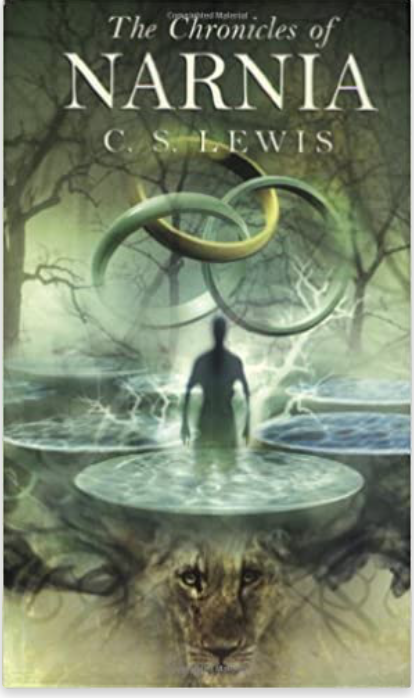For what you see and hear depends on a good deal on where you are standing: it also depends on what sort of person you are.
Oft quoted line. And accurate, I say.
The other day Ryan and I were discussing literary systems of space/time travel and he referenced the puddles and rings and The Wood Between the Worlds that C.S. Lewis wrote into this book, so I read to review how it was done.
Travel bags aside, I really like this story for varieties of reasons. For one thing, it’s pretty funny in places. I mean – the scene where the creatures plant uncle Andrew like a tree!? So GREAT. “There was some dispute as to which way up Uncle Andrew ought to be put into the hole, and he had a very narrow escape from being put in head foremost.”
One of my favorite scenes in this story is when the ragged band of characters – Digory, Polly, Uncle Andrew, Strawberry, and the Witch – find themselves together and bewildered, having just transported from a chaotic skirmish in the world we know and now suddenly find themselves stranded in a world we don’t. And neither do they. It is dark and unnerving there and their conversation is filled with confusion and fear and frustration as they try to sort it out and decide what to do next. It is in this predicament that they begin to hear a faint and far off voice. Singing. They all shut up and listen. “It was very far away and Digory found it hard to decide from what direction it was coming. Sometimes it seemed to come from all directions at once. Sometimes he almost thought it was coming out of the earth beneath them. Its lower notes were deep enough to be the voice of the earth herself. There were no words. There was hardly even a tune. But it was, beyond comparison, the most beautiful noise he had ever heard.” The scene builds, light comes in, forms take shape. Aslan appears. And C.S. Lewis writes Narnia into being. A beautiful creation story.
Another highlight for me is the exchange between Aslan and Strawberry, the common horse, when Aslan offers Strawberry wings and Strawberry dares to believe and accept. In that scene, Aslan gives Strawberry a new name, “And then, just as the beasts had burst out from the earth, there burst out from the shoulders of Fledge wings that spread and grew, larger than eagles’, larger than swans’, larger than angels’ wings in church windows. The feathers shone chestnut color and copper color. He gave a great sweep with them and leaped into the air.”
The last point for my reflections here, now, is an appreciation for the way C.S. Lewis wrote in such a depth of knowing that Aslan shares in Digory’s grief and the hope with regard to Digory’s sick mother. At the end of the story Aslan sends Digory home from Narnia with an apple from the magical protection tree saying, “What I give you now will bring joy. It will not, in your world, give endless life, but it will heal.” There is some hard truth here. And it is good.
Closing this book, I can’t help but think….as we sort through chaos, working to find our way through this world where we live, may we also have eyes to see and ears to hear. And dare to believe.

 A Place On Earth – Wendell Berry
A Place On Earth – Wendell Berry